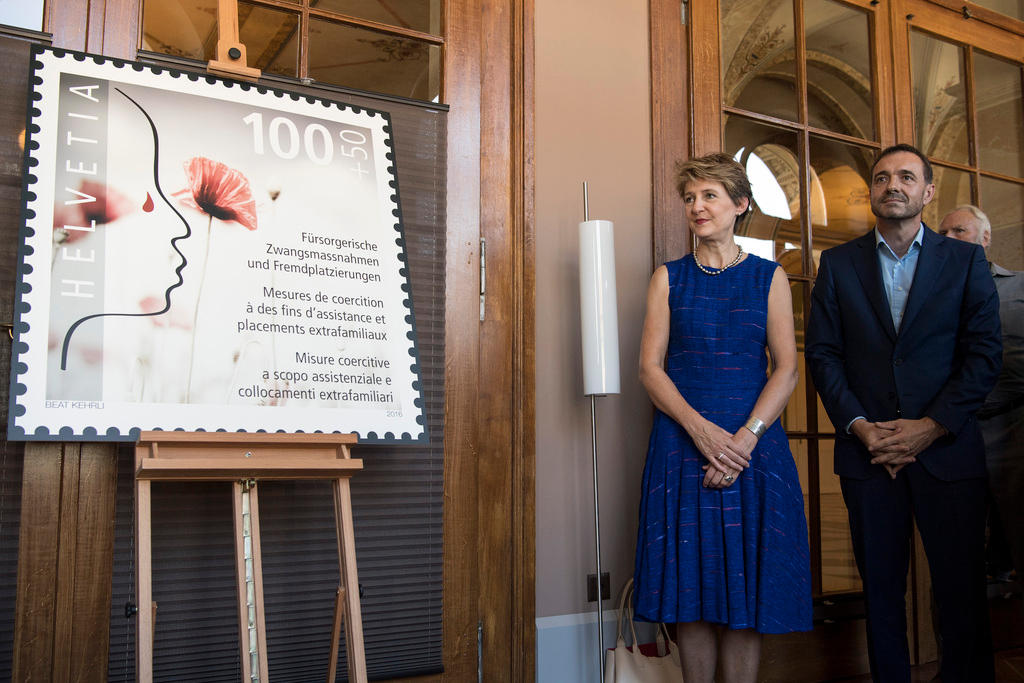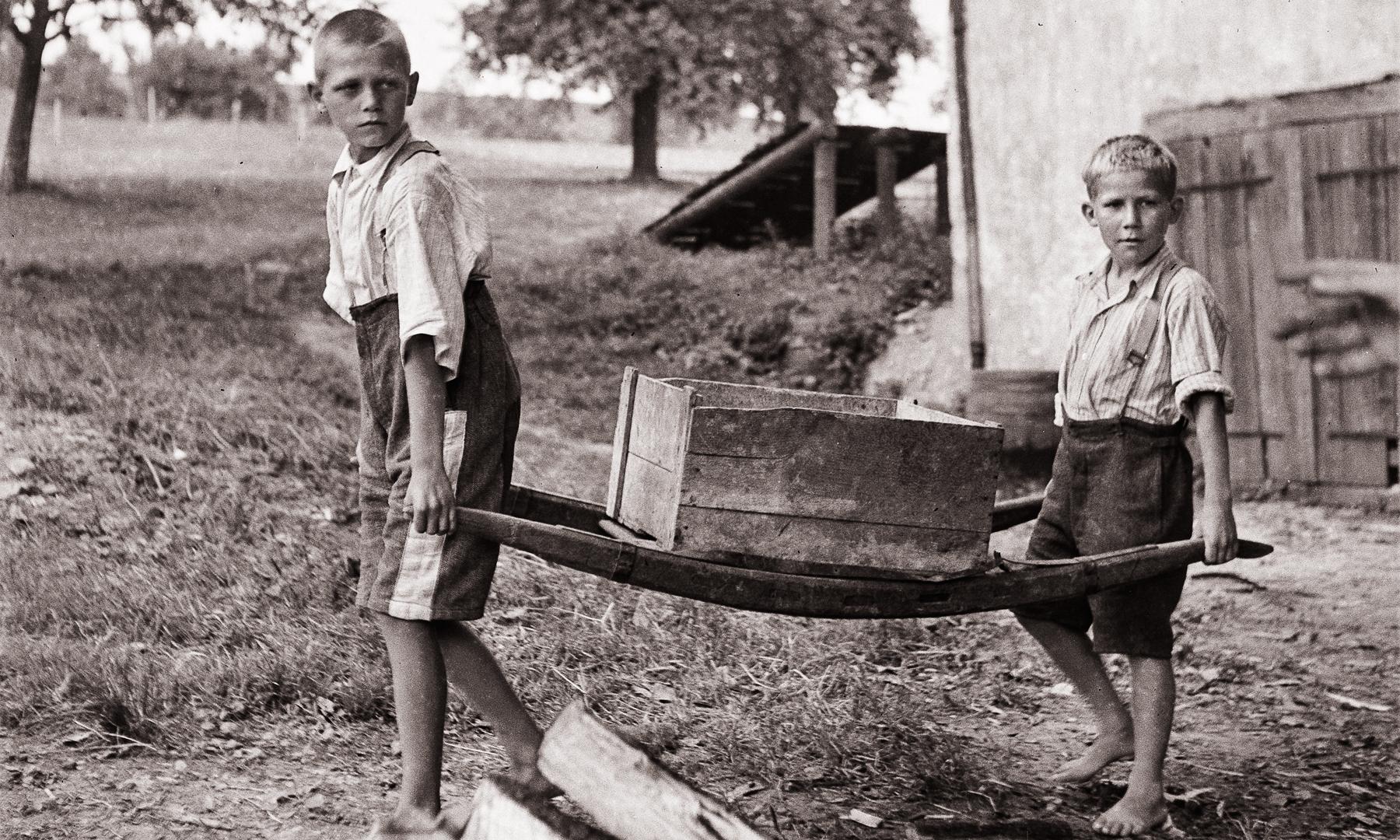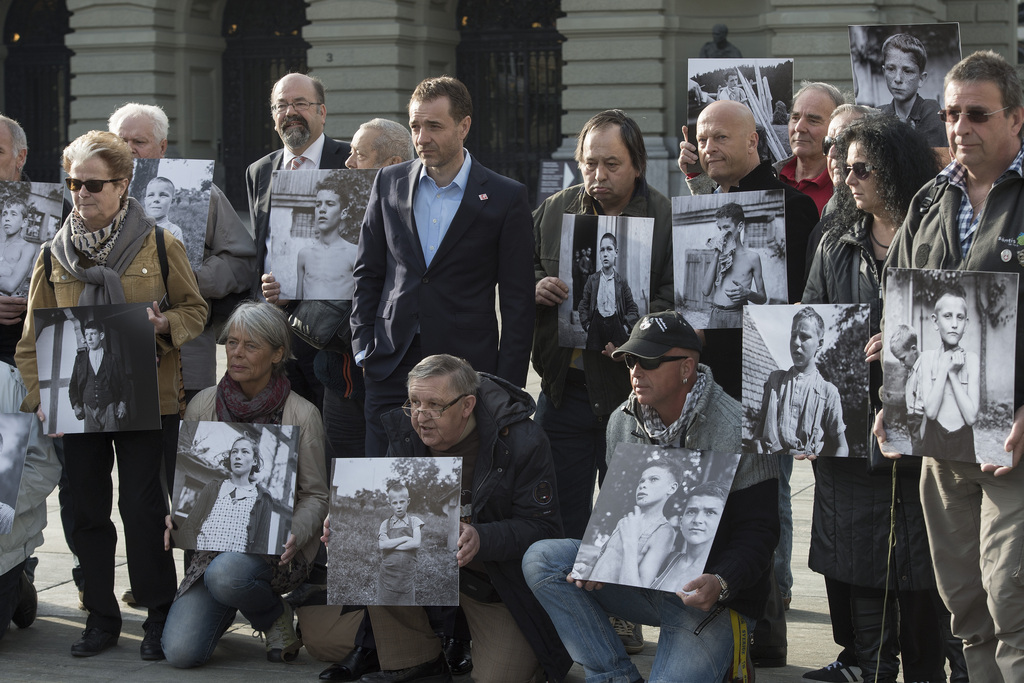Special stamp released for victims of Swiss ‘care’ policies

The Swiss Post has dedicated a stamp to victims of Switzerland’s forced institutionalisation policies and “discarded children” who were taken from their families as part of a harsh foster care system.
Unveiled by Justice Minister Simonetta Sommaruga and victims’ representatives on Thursday as an “official sign of appreciation”, the stamp has a market value of CHF1 ($1.03) and a surcharge of CHF0.50. All of the additional income will go towards the emergency aid fund for people who were victims before 1981.
Until now, surcharges on stamps were reserved for Pro JuventuteExternal link and Pro PatriaExternal link, Swiss charities for young people and cultural and social projects respectively.
“With this special stamp the state is expressing its appreciation and respect for those people who until a few years ago were subjected to unimaginable wrongs,” Sommaruga said.
She added that since the stamp would never lose its value, future generations would be reminded of the injustice.

More
Who were Switzerland’s ‘slave children’?
“It will always remind our society that the weak are to be protected and that everything must be done so that what happened is never repeated. This special stamp helps that to not be forgotten. Therein lies its real greatness,” she said.
‘Administrative care’
Forced institutionalisation policies existed in Switzerland until 1981.
Tens of thousands of so-called discarded children were taken from their families, a practice which evolved from a rural custom of taking on poor children as servants and labourers.
In addition, women and girls were subject to forced sterilisation and locked up under the “administrative care” legal provision. Some were removed from society for being unmarried and pregnant, many were put under pressure to give up their babies for adoption. Other women and men were deprived of their liberty for “licentiousness”, “drunkenness” or for being “work shy”.
According to a 1991 study by the Swiss Nursing School in Zurich, 24 mentally disabled women aged 17-25 were sterilised between 1980 and 1987.
In addition, the story of the Swiss gypsy people, known as the Jenisch, exposed a calculated policy of Nazi-style eugenics carried out behind closed doors with the help of Pro Juventute well into the 1970s.
Apology and compensation
In 2010, the then Justice Minister Eveline Widmer-Schlumpf apologised to young people sent to prison between 1942 and 1981 without a trial and despite having committed no crime.
In 2013, Widmer-Schlumpf’s successor Simonetta Sommaruga apologised on behalf of the cabinet for the harm suffered by discarded children, women and girls subject to forced sterilisation and those locked up under the “administrative care” legal provision.
Despite the official apology, there was no talk of compensation. In March 2014, a group of citizens, led by Guido Fluri, a former boys home resident turned multimillionaire, launched an initiative calling for victim compensation.
Nine months later, the initiative calling for the creation of a CHF500 million compensation fund for victims was handed in with enough signatures to force a national vote.
A year later, the Swiss cabinet forwarded a counterproposal to parliament, asking for the creation instead of a CHF300 million compensation fund to be distributed to an estimated 12,000-15,000 victims, with each person receiving a maximum of CHF25,000.
In April 2016, Fluri said he was prepared to withdraw the initiative and accept the lower amount if parliament accepted the counterproposal, saying many victims were old and fragile and needed the money now.
On Thursday, Fluri repeated this position. “We want to be able to send a letter to as many of the victims, who are now old, as possible, telling them that they will receive compensation within their lifetime,” he said.
Naturally the letter would be sent with the new stamp, a “sign that awareness among society had begun”, he added.

In compliance with the JTI standards
More: SWI swissinfo.ch certified by the Journalism Trust Initiative




You can find an overview of ongoing debates with our journalists here. Please join us!
If you want to start a conversation about a topic raised in this article or want to report factual errors, email us at english@swissinfo.ch.